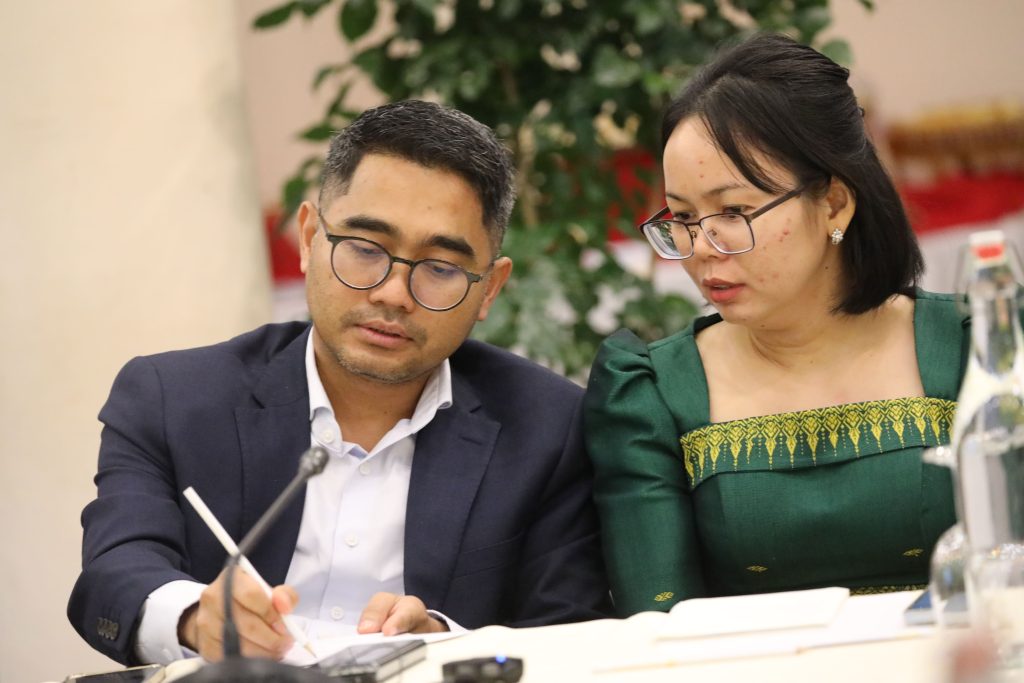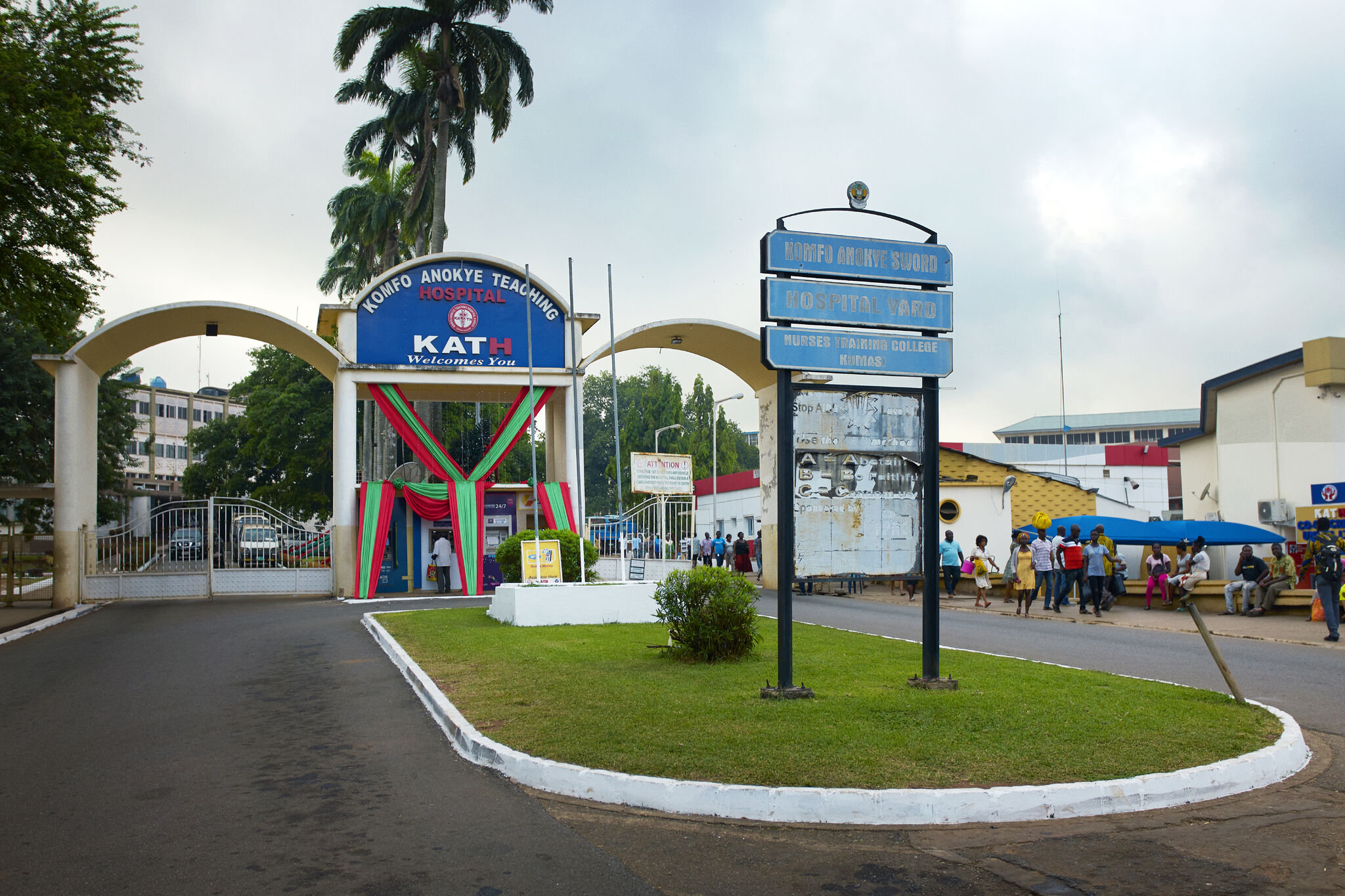
The city of Kumasi, Ghana has increased the chances of survival for childhood cancer patients by bringing timely referrals for suspected cases from 1% to 25%.
Last year, almost 150 patients were seen at the Komfo Anokye Teaching Hospital (KATH), which serves the central and northern regions of Ghana. An increase in referrals is attributed to the Oncokids app, a locally owned software that was developed as part of a paediatric cancer project with the City Cancer Challenge Foundation (C/Can).
Healthcare workers were trained on early warning signs and were equipped to make diagnosis and refer in a timely manner. The cases received from this network of health workers were all confirmed cases of cancers, showing that the training has an impact.
from Dr Vivian Paintsil, Senior Specialist Paediatrician at Komfo Anokye Teaching Hospital and Senior Lecturer, Department of Child Health, Kwame Nkrumah University of Science and Technology.
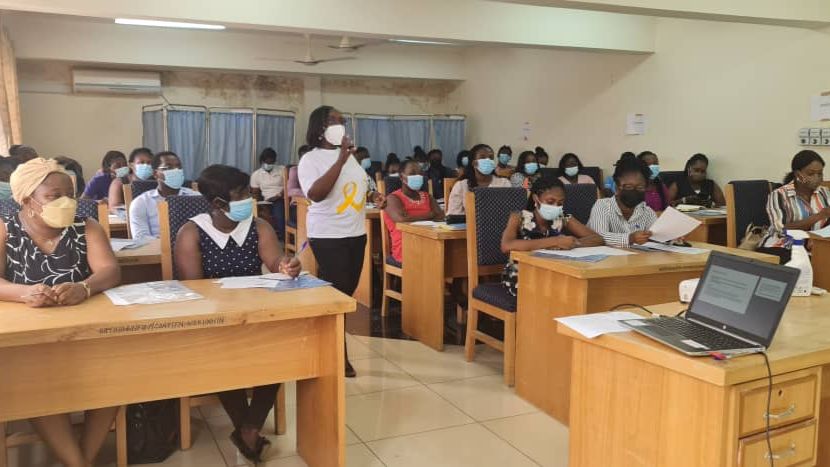
Late diagnosis is a huge challenge for childhood cancer cases in Ghana, with lack of symptom awareness and delays in referrals being barriers to accessing treatment. While paediatric cancer is generally not preventable, timely diagnosis and treatment are key to improving the chances of survival.
Local health stakeholders led the development of the project in 2022, where the first task was to create a network of 24 facilities in Ghana’s Ashanti region and ensure they were easily connected to KATH, where paediatric specialists are based. A mapping was also done to identify which care sites could continue treatment for confirmed cases after patients had been seen.
Over 120 healthcare professionals from these sites were provided with training on early warning signs for childhood cancer and quick referrals using the fit-for-purpose Oncokids app. The app was built based on the health system’s paper referral form and provides a platform to refer directly to KATH’s treatment centre. For patients that do not present at the centre, a reminder system with patient data is integrated into the app so that there can be a follow-up.
The project has given me an idea on how to suspect and refer cancers and has enlightened me that children can also get cancer. I have benefited a lot and can now differentiate between normal growth and cancers in children.
A healthcare worker in Ashanti.
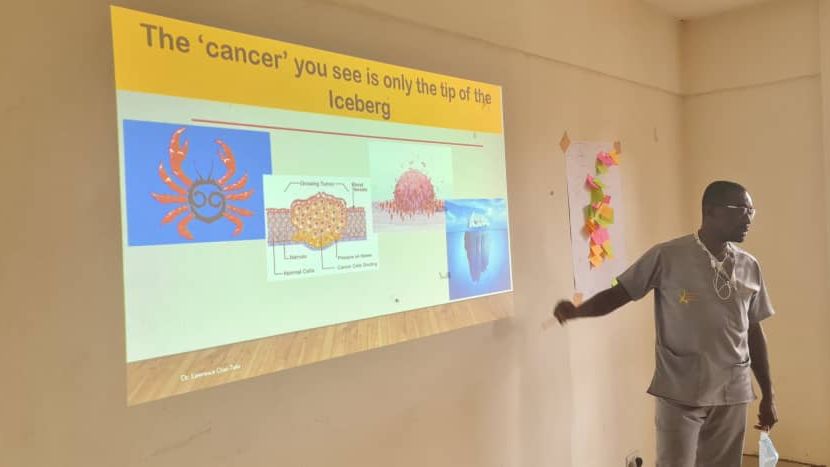
The Oncokids app removes the need for paper forms which were previously given to family members of children to send by post to KATH. A survey of the project showed that facilities who received the training had assurance and confidence in referring directly to KATH, rather than using the existing referral pathway which caused further delays.
The project is due to be expanded in 2024, with 26 additional facilities to become part of the network and trained to use Oncokids and detect symptoms.
Sensitising multilevel interdisciplinary healthcare staff to identify potential childhood cancer cases presented to their facilities and ensuring their prompt and efficient to appropriate treatment centres with this project represents the first critical step in improving overall outcomes, by reducing system delays.
Lawrence Osei Tutu, Clinical Paediatric Haematology Oncologist, KATH and project member of the C/Can Kumasi paediatric oncology project.
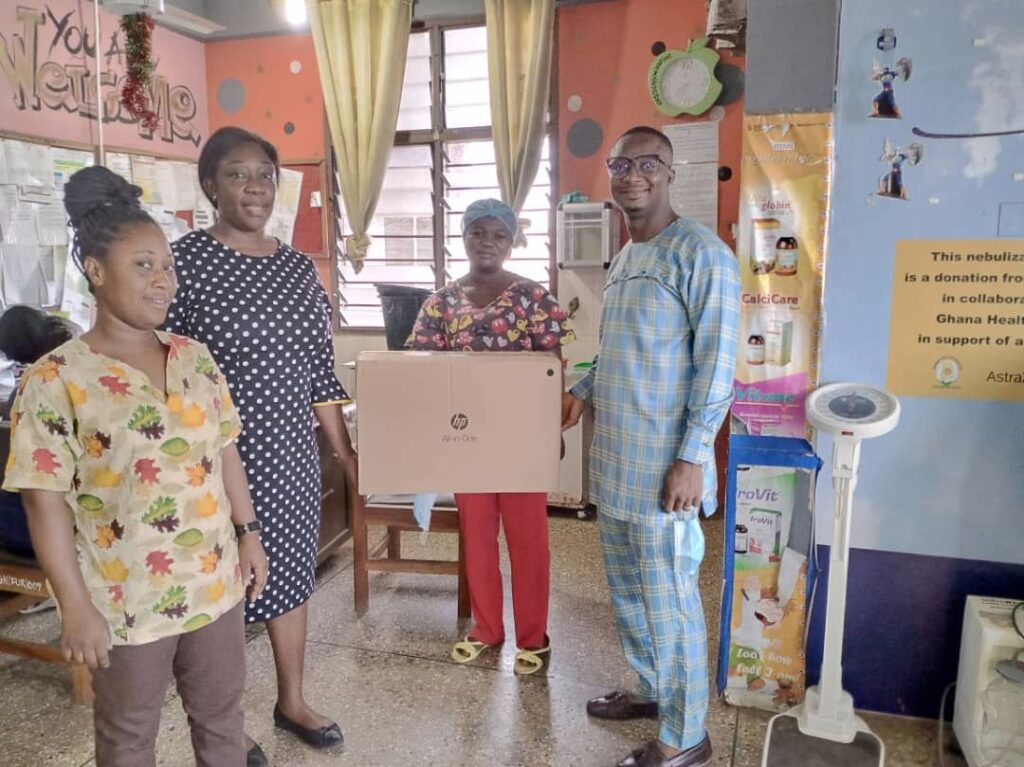
The city of Kumasi has been part of the City Cancer Challenge network since 2018, and since co-created 12 cancer care projects with over 256 local health professionals, 53 local patients and 32 Ghanaian institutions. The Ministry of Health in Ghana is currently looking to replicate existing cancer care solutions in other parts of the country.
The City Cancer Challenge would like to thank Fondation S for their initial support to the paediatric cancer project in Kumasi, Ghana.
